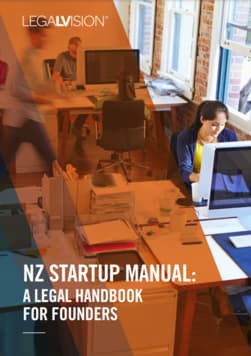Becoming a company director is a huge responsibility. You will have several essential roles in your company, which in turn requires a lot of responsibility. If you do not properly execute your power as a director and your company becomes insolvent, you may be personally liable to your company’s creditors for any debts you accrued. This can occur even if you did not actively participate in this decision but instead did little to prevent a poor outcome. If you want to protect your assets in the event of this happening, you may wish to consider setting up a family trust to ensure that your family will continue to be protected.
What is a Company Director?
A director is someone who is appointed to manage a company’s business. Typically companies have several directors, but legally they are only required to have one.
A director’s specific responsibilities can include:
- determining the strategy and direction of the company;
- making decisions relating to the company;
- organising annual meetings;
- providing information to shareholders; and
- ensuring that the company continues to be kept up to date with the Companies Office.
Additionally, a director must also take reasonable care when governing the company to provide financial certainty for shareholders and creditors. For example, directors cannot carry out business in a way that will create risk or loss for the company’s creditors. Likewise, they cannot take substantial risks with the company’s assets.
What Risks Do Directors Face?
One important thing to note about directorships is that if a company becomes insolvent, directors may be personally liable for any debts accrued by the company due to the director’s breach of duties. Additionally, if you breach your duties as a director, you may face criminal charges or be forced to pay the penalty. You can also be liable if you allow a breach of duties to occur but take no active steps to commit a breach.
Therefore, if you become a company director, there is the risk that your company’s creditors may claim your assets. If you have assets you wish to protect, such as a family home, you could consider creating a trust.
Continue reading this article below the formWhat is a Family Trust?
A family trust is an entity that you can use to protect personal assets. Typically, family trusts contain family assets or are for the benefit of the families.
When you place assets into a trust, you no longer personally own the assets. Instead, they belong to the trust, and become trust assets. Because of this, trusts can be helpful in several ways. Primarily, they allow you to protect assets from claims from creditors.
How Do I Set Up a Family Trust?
If you plan to set up a family trust, you will be the trust’s settlor. The settlor is the person who creates the trust, and generally, they store their assets in the trust. You will also need to appoint a trustee. A trustee is a person who manages the trust. You can also be the trustee when you are the settlor, though you may also want to appoint a professional trustee like lawyers or accountants. Finally, you will also need to choose beneficiaries. Beneficiaries are the individuals who benefit from the trust. Typically for a family trust, these will be the members of your family. In the event of your death, or whenever the trustees see fit, the beneficiaries will be able to claim assets from the trust.
Additionally, you will need to write a trust deed to outline the details of how you want your trust to be governed. This document will name the trustees and beneficiaries and outline the trust’s rules. This will also allow your trustees to continue governing your assets in the event of your death.

Essential reading for anyone building their startup. This free guide includes practical advice and seven real-life case studies.
Key Takeaways
When you become the company’s director, you may be held liable for any financial losses that the company faces if it becomes insolvent. Therefore, if you wish to protect your assets, you could place some of your assets in a family trust.
If you need help with family trusts or company directorships, our experienced corporate lawyers can assist as part of our LegalVision membership. You will have unlimited access to lawyers to answer your questions and draft and review your documents for a low monthly fee. Call us today on 0800 005 570 or visit our membership page.
Frequently Asked Questions
It depends. Typically, due to the specific duties of company directors, they face greater liability. However, if you commit a crime as an employee or engage in other inappropriate behaviour, you will be individually liable.
A company only needs one director, but can have a number of directors.
We appreciate your feedback – your submission has been successfully received.












